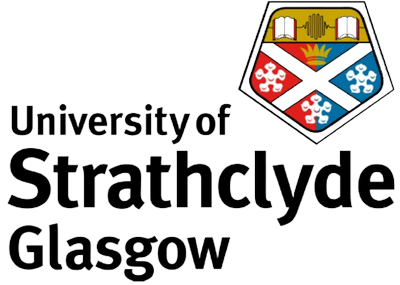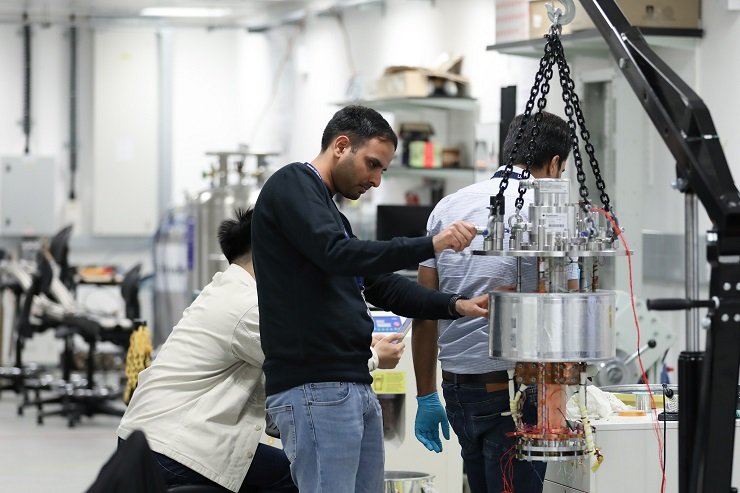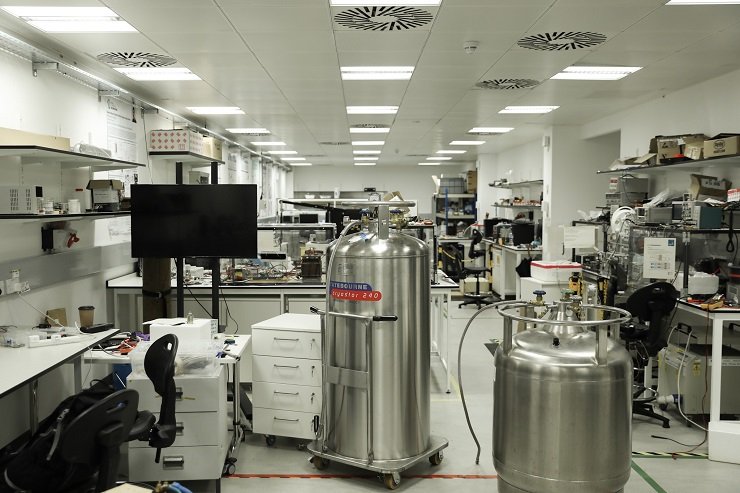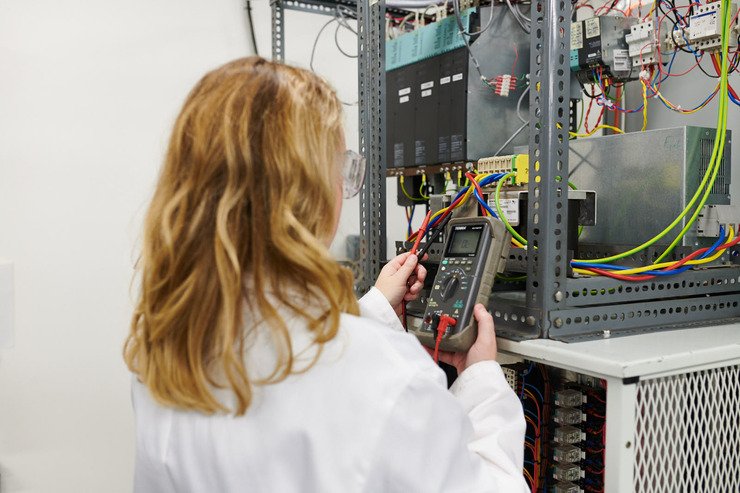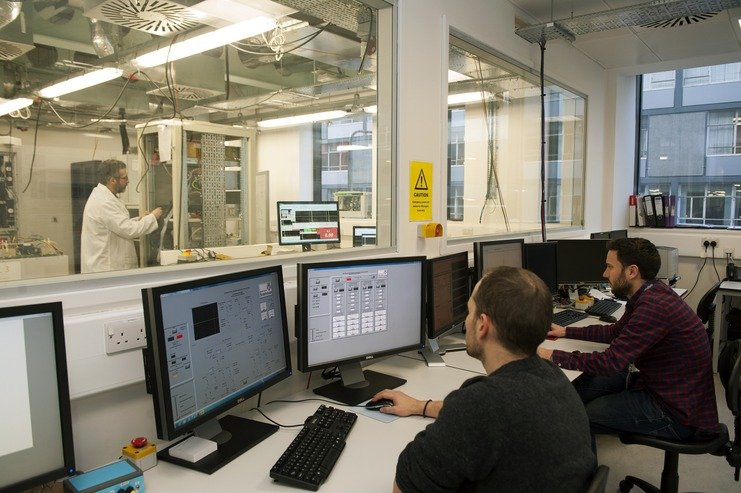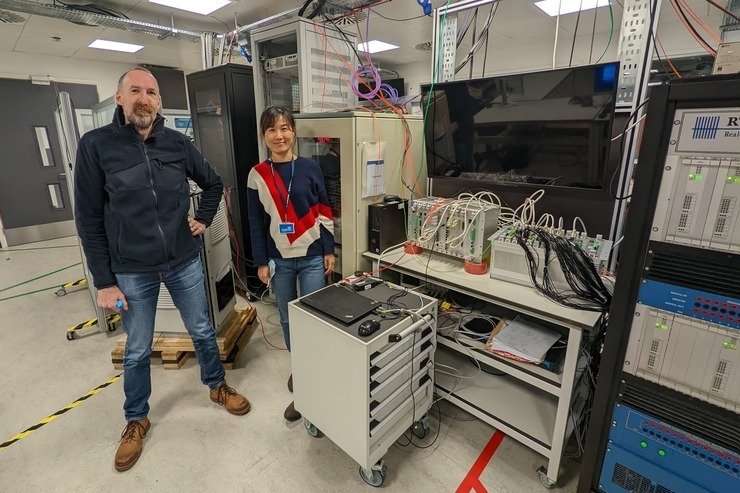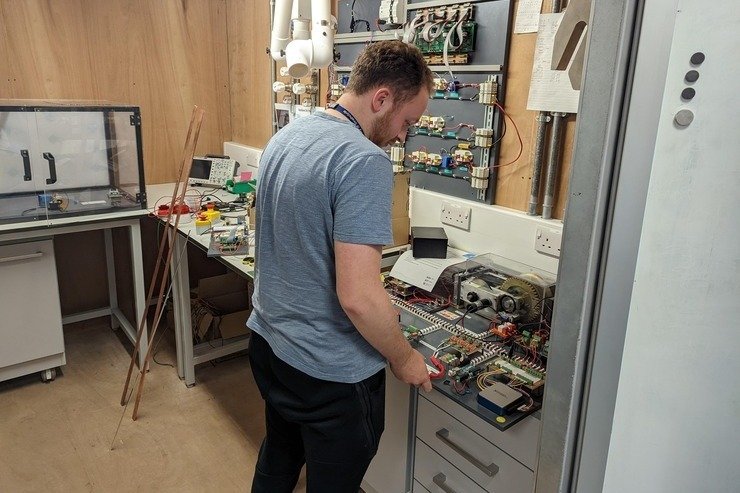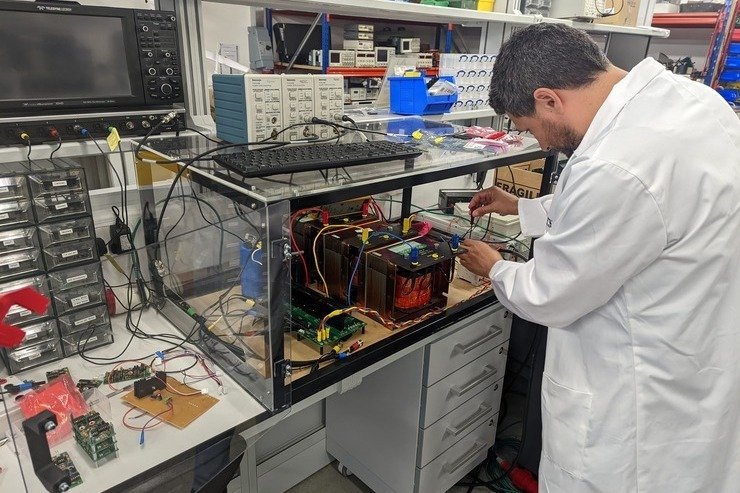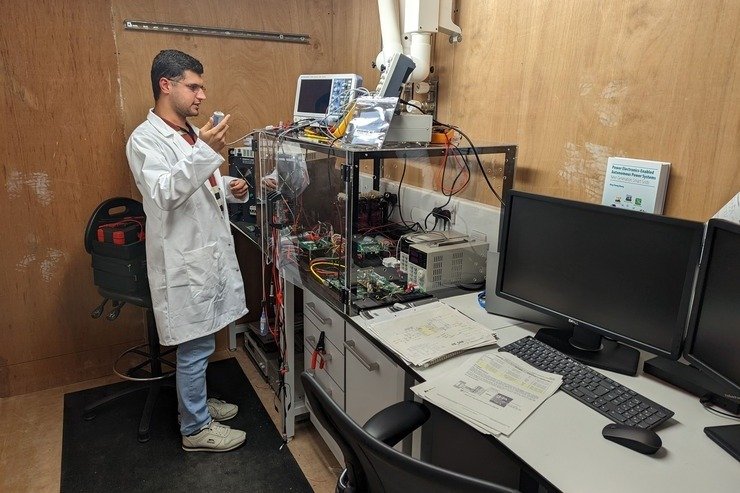Location: Scotland
The University of Strathclyde’s Institute for Energy and Environment (InstEE) is one of Europe’s leading and largest power systems and energy technology university research groups. InstEE’s 200+ staff and researcher students engage in a diverse range of collaborative, multidisciplinary research programmes, addressing issues such as the creation of sustainable energy systems, high power/high integrity power and propulsion technologies, condition monitoring and industrial informatics solutions for major energy companies, transport integrators and OEMs, and associated supply chains.
InstEE’s research expertise is augmented by structured collaborations with business, industry and policy partners – utilising state-of-the-art experimental facilities to deliver research and commercial outcomes. The Institute’s key capabilities support research and development of PEMD technologies at sub-system, system and platform levels, delivering innovation and integration of high power, high integrity technologies and systems for the Transport and Energy sectors.
Key strengths and unique capabilities
- Power conversion across all power levels, ranging from individual power modules to specialised integrated hardware and software controlled platforms and systems
- High efficiency (>99%) power conversion, exploiting wide bandgap GaN HEMFETs, SiC MOSFETs and SiC bipolar devices, and state-of-the-art silicon devices
- Rapid development and implementation of innovative, practical multi-kilowatt power converters, demonstrated using high-quality, scalable, modular prototypes.
- Sustainable manufacturing of electrical components for the circular economy
- Composites and their integration
- Superconducting machines.
Design, characterisation and manufacture of industrial-scale superconducting and non-superconducting windings (in collaboration with NMIS).
- Electrical machine and drive system design and implementation
- Control of converters for generator grid interface, including optimisation of control under weak grid conditions, and the study of interactions within multi-converter systems
- High-power converter systems for energy generation, transmission and bulk process industries. Modelling, simulation, control, and prototyping of series-connected power insulated-gate bipolar transistors (IGBTs) and multi-level converter topologies, hybrid converter topologies, solid-state/hybrid DC circuit breakers, and high-power current-source inverters
- Asset management and condition monitoring
- Superconducting technologies.
InstEE hosts 2 UK Government-funded EPSRC Centres for Doctoral Training (CDTs) specialising in Wind and Marine Systems, and Future Power Networks and Smart Grids. Through formal training and research programmes, and with support from UK and global industry partners, these aim to produce the next generation of engineering talent needed to lead the vibrant power and energy sectors.
Equipment
- 100 kVA microgrid and DC aero-electrical test networks
- Power and control hardware in the loop functionalities
- Communications emulation
- Protection rigs for aerospace resilience and innovative fault management evaluation
- Composite materials testing
- Fast converter prototyping
- Innovative protection and fault emulation test beds.
Co-located with HV, plasma and power sensor laboratories.
- Multi-kilowatt 4 quadrant programmable AC/DC voltage supplies
- Programmable electronic loads
- 1 GHz mixed signal oscilloscope with IsoVu 2.5kV high-bandwidth isolated probes
- Rapid control system prototyping platform
- Industry standard PCB and electronic design software
- Full surface mount prototyping capability.
- Hybrid energy storage rig
- High Temperature Superconductor (HTS) cable testing rig
- HTS machines rig
- Cryogenic drives.
Supplemented with industry scale machine manufacturing and cryogenic testing rigs.

